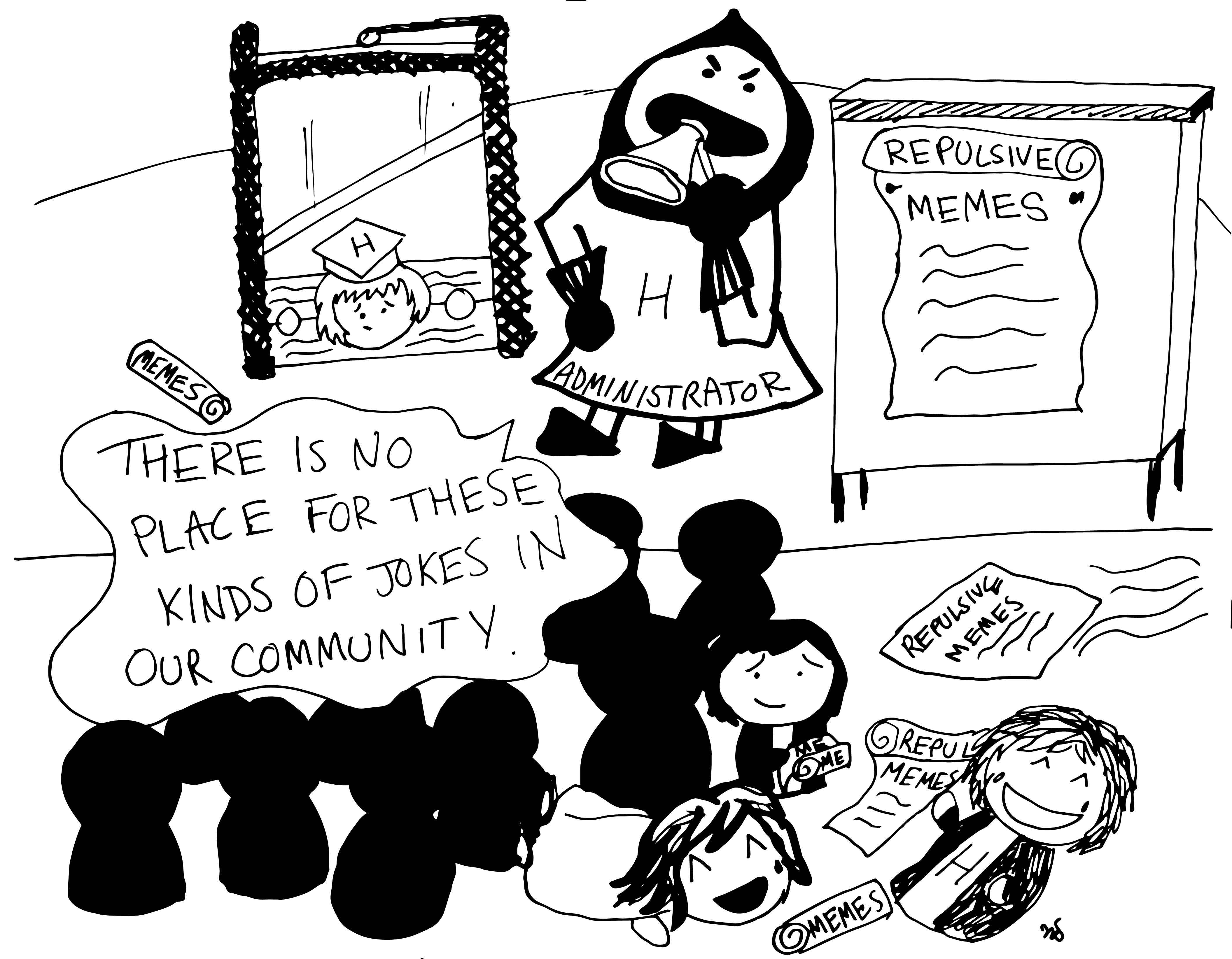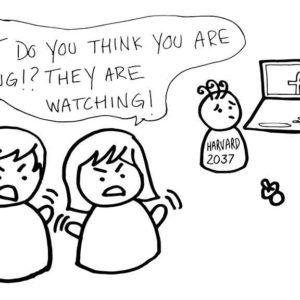
The best way to keep naughty jokes away from the community is through a big controversial announcement.
Harvard College recently rescinded admissions offers to at least ten prospective members of the Class of 2021 after learning that the students had shared “inappropriate” memes in a Facebook group chat. The chat was an invite-only group of roughly 100 members, devoted to “edgier” memes than those being posted in a larger Facebook group. The students found each other through the Harvard Class of 2021 Facebook group that Harvard had set up.
In recent years colleges have had lots of unwelcome media attention for limiting student and faculty freedom of expression. There was controversy last year after Erika Christakis of Yale sent students an email suggesting they monitor each others’ Halloween costumes instead of letting administrators do it for them. Since then, Dean June Chu of Yale has resigned after administrators discovered Yelp reviews they considered objectionable. Professor Bret Weinstein (a proud Leftist) refused to leave campus for a no-whites day at Evergreen State College in Washington.
Harvard’s decision has dangerous implications beyond academia. Alan Dershowitz told the Boston Globe, “These actions are not consistent with the spirit of the First Amendment.” But there is more: Harvard set a dangerous precedent for how to behave when you have been shown private correspondence you have no business inspecting. Administrators had no right to spy on students this way, much less to expel them on the basis of private conversations. Such actions invade students’ privacy whether or not they qualify as technical, legal violations. Harvard evidently cares about seeming right, not doing right.
Imagine that Alice and Bob are Harvard students, and Alice texts Bob an obscene joke. Bob shows a dean. If the dean is any good, he will pay no attention. He has no right to spy on Alice’s correspondence or anything else in her private life. And what if the same correspondence involved three people, or five? Obviously it’s still private. If Alice’s email went to 20 people, it’s still private—just as a party in someone’s dorm rooms might be. A dean can’t just barge in and eavesdrop. If 100 people are involved, it’s still private, like an off-campus barbecue. In all of these hypothetical cases no dean has been invited, and if one showed up anyway, the room would have immediately gone silent until the intruder left.
We speak differently in public versus private, in the company of employers versus friends; we are lying to ourselves if we deny it. And this is how it should be–the alternative is the intolerable society of a dictatorship, where every interaction outside your family demands caution. A slip of the tongue means your neighbor can report you to the authorities and, possibly, destroy your life. In fact we have seen lives destroyed or disrupted when their personal information was merely posted online.
No more space where students are free from monitoring, no more divide between the private and public means a culture of fear.
Of course, there are times when students should report their peers, and administrators should pay attention. The NSA violates privacy in the interest of public safety, and colleges likewise must act on information that concerns student safety. But those cases concern terrorist plots, heists, secret documents and other dangerous developments. “Offensive memes” is not and should not be on the list.
There is a second problem with Harvard’s decision. Harvard has decided that students should be punished on the basis of bad character as revealed by personal correspondences. But who decides what is evidence of poor character? And who gets punished?
Every last person has skeletons in his closet–or at least, bones that an evil-minded institution could twist around to make him look bad. Ayaan Hirsi Ali spent her life working for Muslim womens’ rights–yet she was disinvited from Brandeis for being “Islamophobic”. In a world where even near-saints have their characters questioned, do we trust the authorities to judge? Marie Antoinette was beloved before she lost her head.
Justice must be consistent. It is impossible for Harvard to monitor every student’s private life, and Harvard does not want to anyway (we hope). So, who ends up being punished?
Does Harvard expel kids who laugh at racist memes? Or men who join 20 forums on how to seduce women? What happens to kids with questionable search histories? Or to underage drinkers?
Does Harvard punish the students who have the worst online activity? Of course not! Those students are almost certainly careful to use secure software. Instead it punishes students who commit far more benign sins but do not take precautions, are disorganized, or are ratted out by their peers.
When the authorities are inconsistent about who is virtuous and who is so bad he should be expelled, it destroys trust and creates fear.




